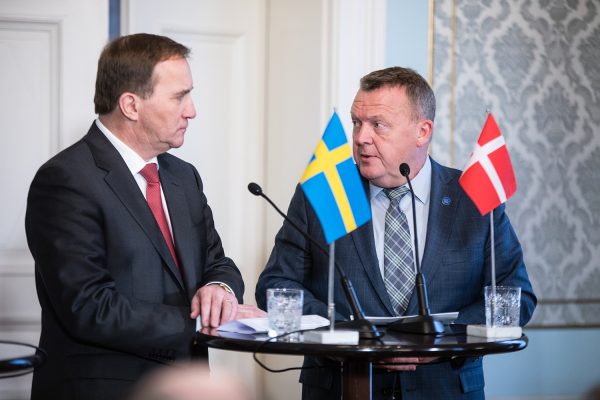
The rise of the far-right Sweden Democrats proves that isolating nativists doesn’t work.
Support for the Sweden Democrats has hovered north of 20 percent since 2015, up from the 13 percent they got in the election a year earlier. They could place second in the election this year, behind the ruling Social Democrats but ahead of the center-right Moderate Party.
Sweden’s mainstream parties have deliberately ignored the far right and most of them share pro-immigration views, making the Sweden Democrats the only recourse for voters who feel their country — the most welcoming to refugees in Europe — has done its part.
With 20 percent of the vote, the Sweden Democrats could block a traditional left- or right-wing government. They already forced Prime Minister Stefan Löfven into an awkward pact with the center-right in the outgoing parliament, reinforcing the impression that the entire political establishment has ganged up on the populists.
Learn!
The Swedes should have learned from other countries in Europe.
All other parties in Belgium have for decades refused to work with the Vlaams Belang (formerly Vlaams Blok), yet it didn’t blunt the far right’s popularity. What ultimately did was the emergence of a more respectable Flemish nationalist party, the New Flemish Alliance.
German parties vilified the far-right Alternative in last year’s election, but that didn’t prevent them from becoming the third largest party in parliament with almost 13 percent support.
Alternatives
What are the alternatives?
- Normalize them. Center-right parties in Denmark, Finland and the Netherlands made deals with their far-right counterparts. In the case of the former, it moderated the Danish People’s Party and the True Finns. In the case of the latter, it exposed Geert Wilders’ Freedom Party as being unwilling to share government responsibility. He blew up the country’s first right-wing government over a budget dispute. Voters remember.
- Take them head on. That is what Dutch liberal party leader Mark Rutte did after Wilders betrayed him. It is what Emmanuel Macron did in France. Both won decisively.
The middle road, combining isolation and appeasement — Sweden’s Social Democrats and Moderates have belatedly argued for restricting immigration and access to welfare — doesn’t work.
